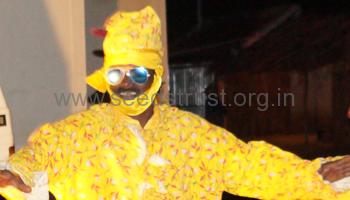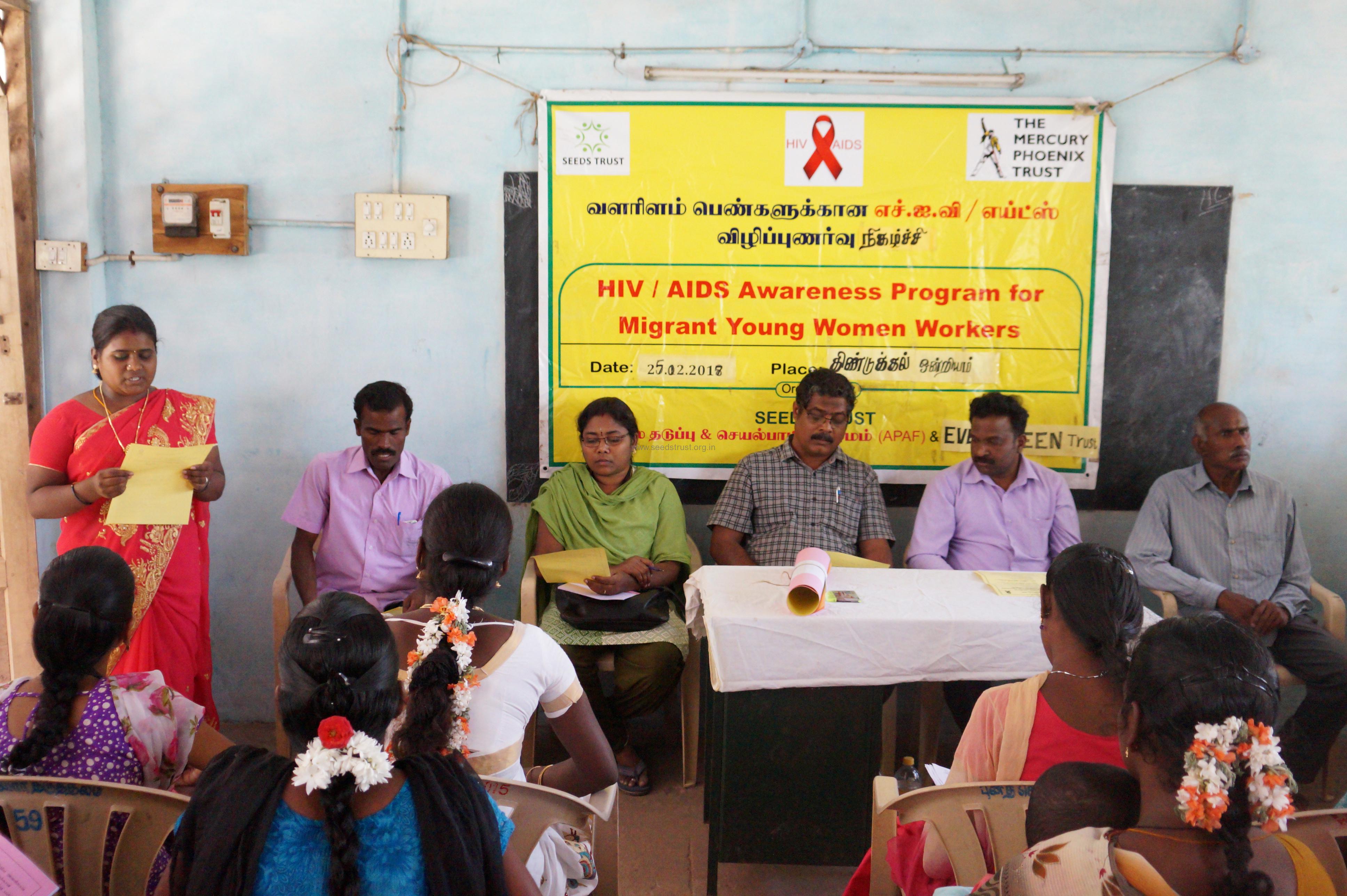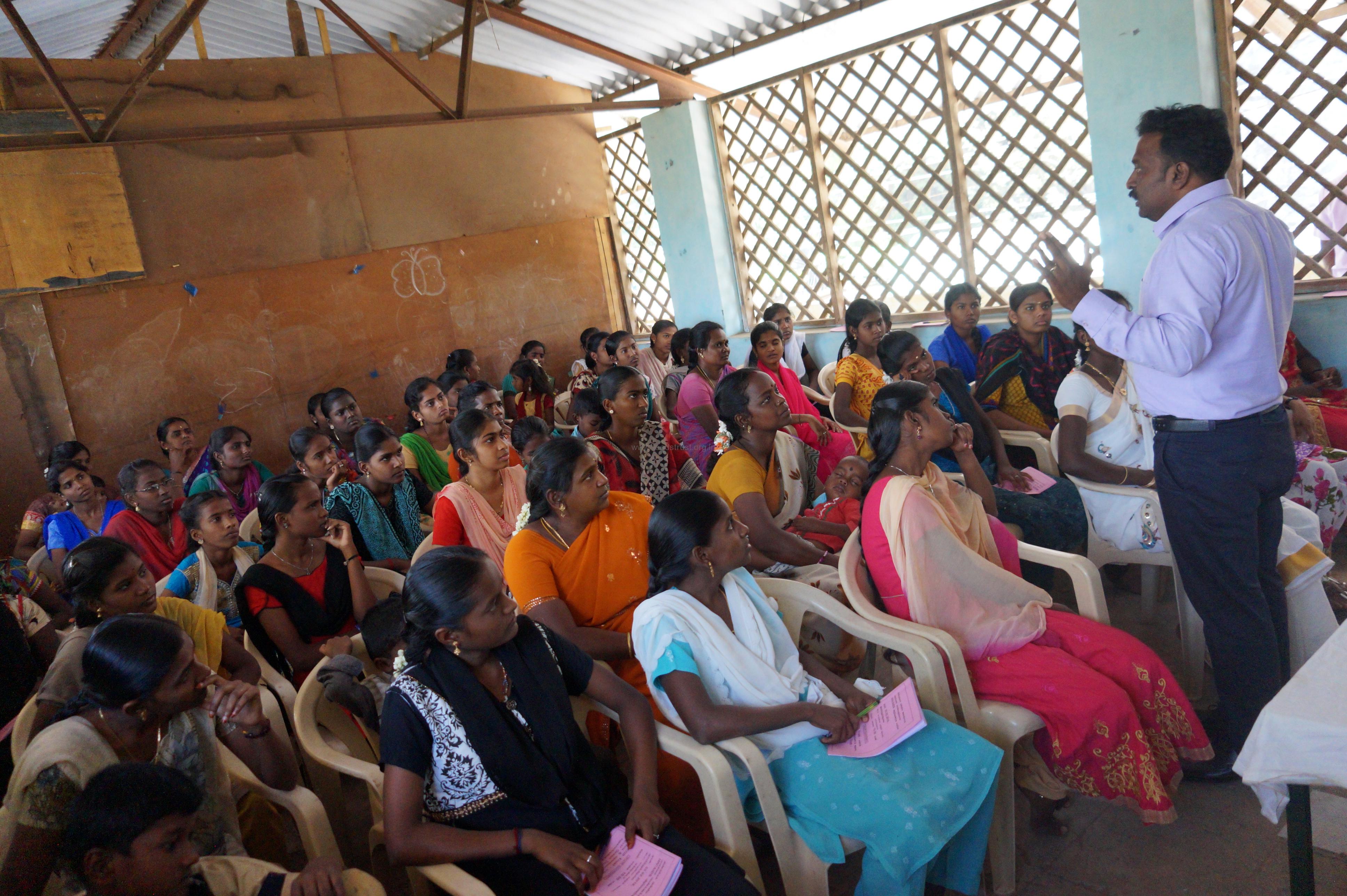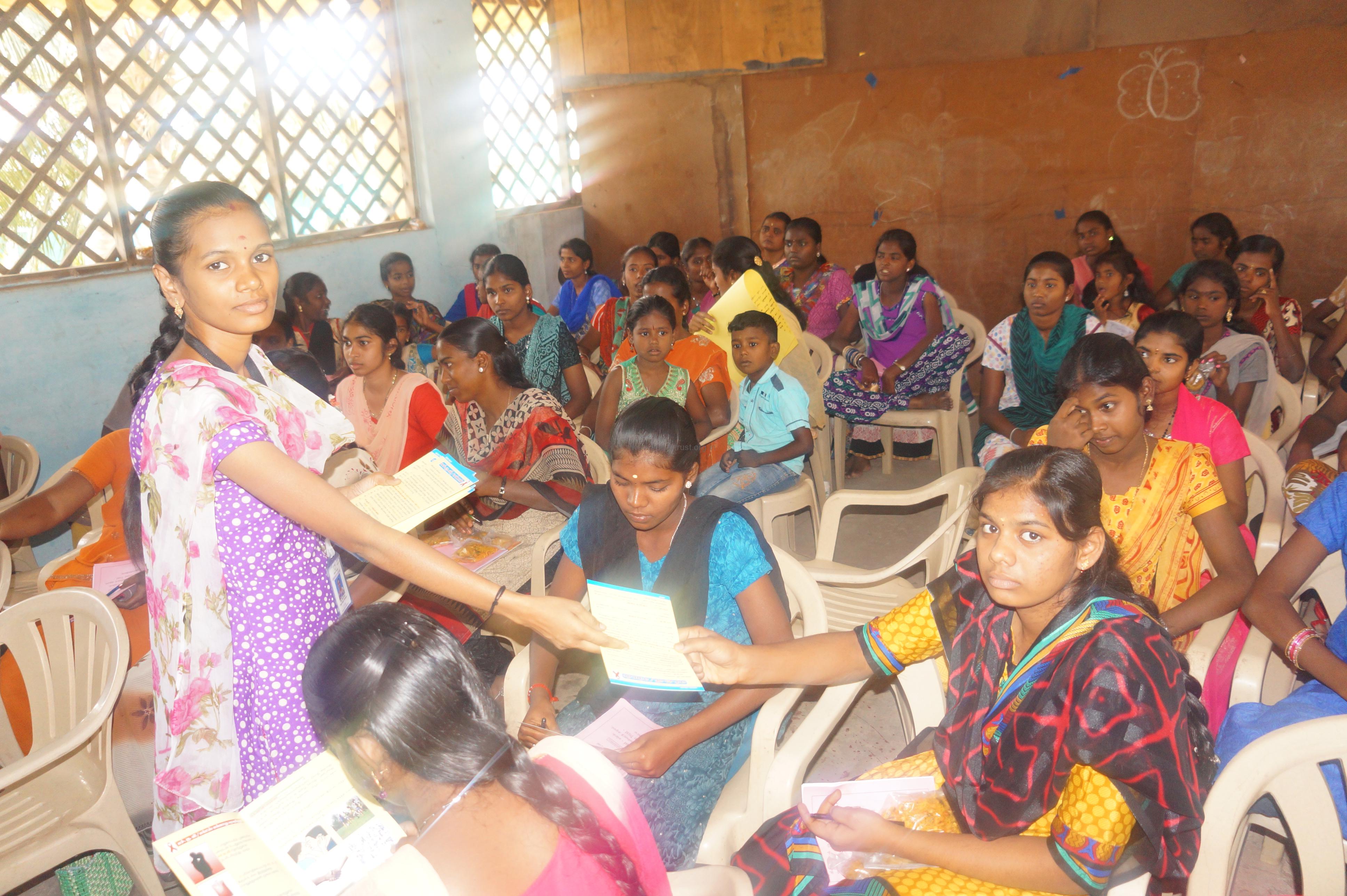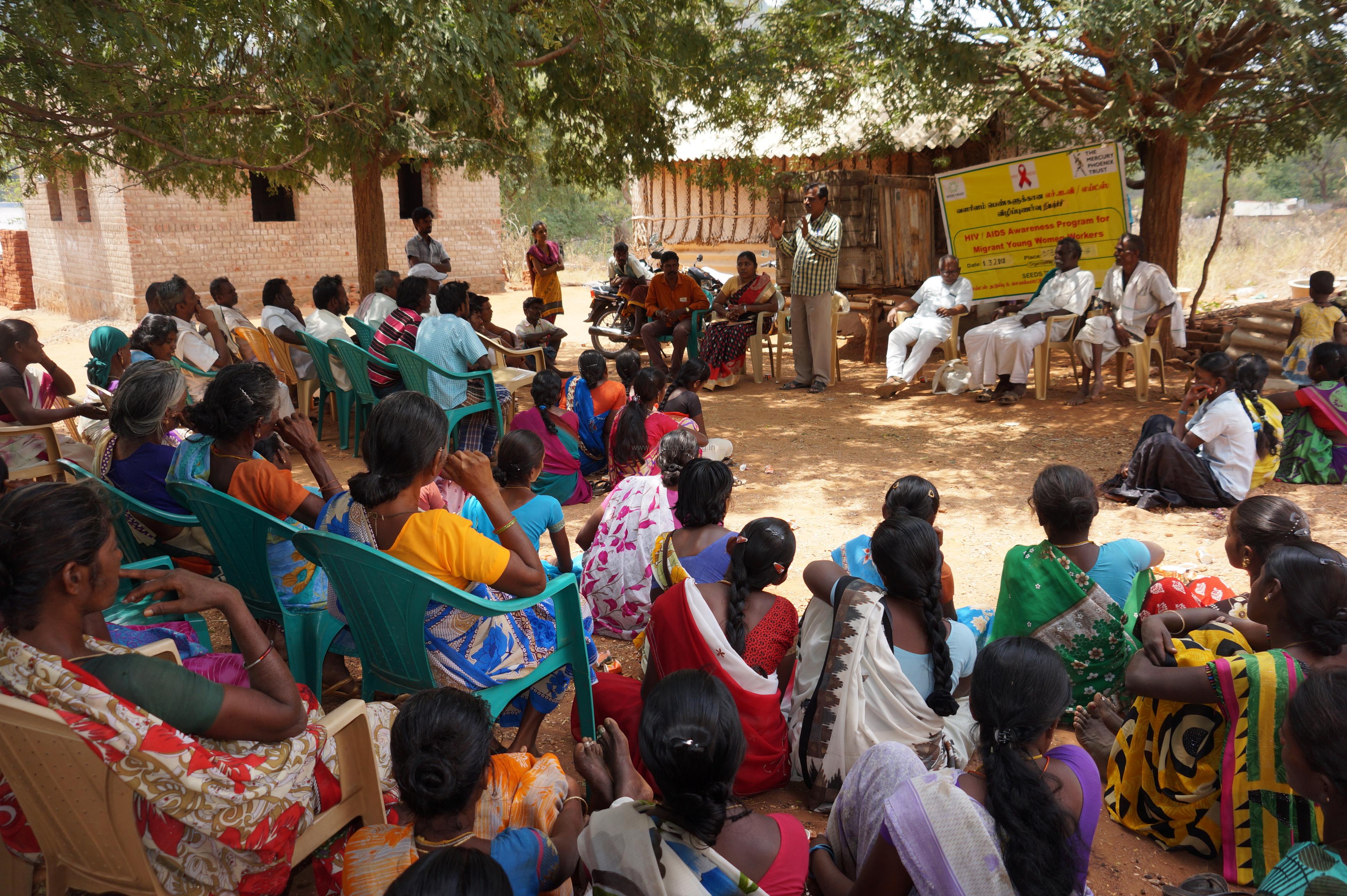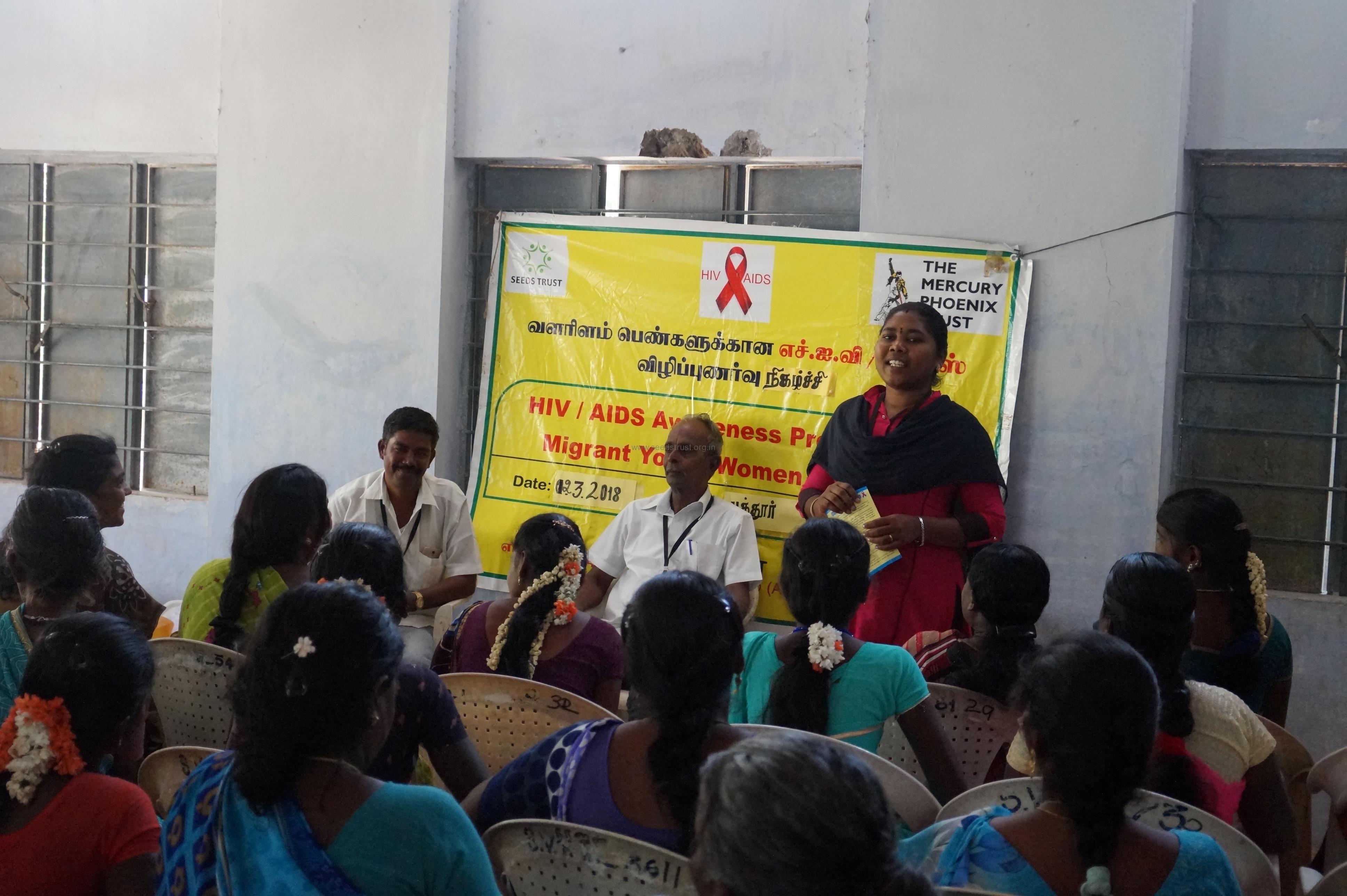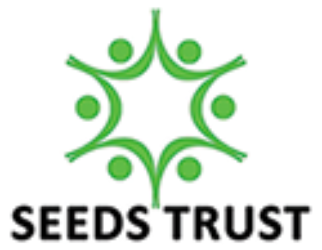HIV/AIDS AWARENESS. CARE AND SUPPORT

HIV/AIDS Awareness programme
In Ayyalur forest region, SEEDS has conducted HIV/AIDS awareness programmein 30 tribal villages through Cultural programmes, skits, street theatre, awareness songs. IEC materials containing messages on mode of transmission, prevention and care were distributed to tribal men and women who were all migrant labourers and high risk groups.
Promoting sustainable livelihood through income generation activities to 25 HIV/AIDS affected widows/women headed families.
SEEDS identified groups of women who were living in difficult circumstances. They mainly constituted HIV infected/affected widows. Due to misbelief, stigma and discrimination practiced and prevalent in the society these women were neglected, discriminated and deserted. Opportunities for employment are less for them, since the near relatives and the community does not want to involve them in social gatherings and work, because they are considered ‘unproductive’, ‘unlucky’ and ‘not worth of facing them’ Considering their helpless situation, SEEDS discussed and finalized that a low cost start up income generation activity, which requires less skill, provides income throughout the year and provides employment opportunities. SEEDS identified that low cost goat rearing and keeping country chicken as viable sources of income, which not only provides income but asset building in the long run. These activities were selected because women can manage these better and are directly linked to their everyday work, making it easy for them to manage and also get regular income. This Project was supported by American Women for International Understanding (AWIU), USA., The following programmes were conducted under this project:
Skill Training:
25 women were imparted skill training on the following topics (in two trainings of two days each), facilitated by subject experts from Animal Husbandry department, veterinary university and practicing farmers.
⦁ Preparation of goatary and housing the animals.
⦁ Disease prevention and control.
⦁ Breeding techniques.
⦁ Feeding methods.
⦁ Raising and preparation of feeds.
⦁ Marketing strategies and techniques.
⦁ Raising home gardens to provide vegetables throughout the year
Providing goats and poultry to the women:
25 womenare provided with two goats and ten country chicken, from the project budget. The animals have been insured, as a precautionary measure.
Supply of Seeds for home garden:
VegetableSeeds were provided to all the women, for raising in their home gardens – for self use and selling in the market.
Marketing support
All women are followed up and supported for ensuring the successful rearing and marketing of the animals and the home garden products
Results/Impact of the project
25 women owned assets (i.e. goats) worth INR.3000 and get yield of 2 kids each after 6 months. 25 families improved their economical and health (nutritional) status by getting fresh and chemical free vegetables grown organically in their home gardens. They are getting sustainable income and employment through this project and improved their socio-economic status.
